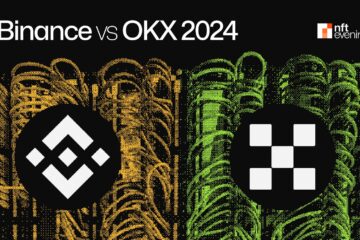
YouTuber Logan Paul has announced a remedial move to reimburse disillusioned investors in his failed CryptoZoo non-fungible token (NFT) game, nearly a year after he pledged redress for the purchasers.
In a Jan. 4 post on X (formerly Twitter), Paul revealed the implementation of a “buy back” initiative, backed by his commitment of $2.3 million, which aims to repurchase Base Eggs and Base Animals at their original acquisition cost of 0.1 ETH between Jan. 4 and Feb. 8 through a designated website.
“This buy-back is a way for me to make whole those who intended to play CryptoZoo. The buy-back is not intended to compensate those who gambled on the crypto market and lost.
It’s important to remember that the Zoo Token was created to support the CryptoZoo game and its players; it was “not intended as an investment vehicle,” as outlined in the original WhitePaper,” He added.
However, submitting a claim entails forfeiting any potential lawsuit against Paul or his associates and relinquishing ownership of the respective NFT. It also requires users to acknowledge that the redemption is not “an admission of any responsibility” by Paul.
“By accepting these Terms, you acknowledge and agree that you are waiving any actual or anticipated claims against PAUL, as well as against any related personnel, affiliates, agents, partners, employees, service providers, or representatives, for monetary or equitable relief arising out of or in connection with CryptoZoo, including but not limited to this Buy-Back, your purchase of any $ZOO tokens, or your purchase of any CryptoZoo NFT.
You further acknowledge that the Buy-Back does not constitute an admission by PAUL of your legal entitlement to any amount, nor does it constitute an admission of any responsibility in connection with any actual or anticipated claims relating to CryptoZoo.”
It is worth noting that in the United States, consumer protection laws can override contractual waivers in certain circumstances, especially in cases involving fraud, misrepresentation, or other illegal activities. For example, if an NFT project were to be found to involve fraud, deception, or misrepresentation, consumer protection laws at both the federal and state levels can be applicable. This includes making false claims about the value, origin, or benefits of the NFTs.
CryptoZoo was a planned blockchain-based play-to-earn game with much promise launched in 2021. Users were required to mint the Base Egg NFTs, which would later hatch into Base Animal NFTs needed to access the platform and earn yield in Zoo tokens.
However, the project gained wide notoriety following Coffeezilla’s investigations, which claimed to expose it as a scam, triggering a crash in its NFT values and leaving investors with valueless tokens.
In response, investors filed a class action against Paul and his affiliates in Feb. 2023.
The game will not be released.
Amidst the turmoil, Paul attributed the project’s earlier collapse to malevolent actors who embezzled funds and sabotaged its progress. He has now filed a federal lawsuit in Texas against these actors, asserting himself as a victim of fraud.
The social media influencer further asserted that he spent $400,000 on developing the fame and claimed it was ready in early 2023. However, he said the game would not be released because “there are too many regulatory hurdles that would need to be cleared that I did not originally understand and would ultimately delay this buy-back even further.”
 Bitcoin
Bitcoin  Ethereum
Ethereum  Tether
Tether  XRP
XRP  Solana
Solana  USDC
USDC  TRON
TRON  Lido Staked Ether
Lido Staked Ether  Dogecoin
Dogecoin  Figure Heloc
Figure Heloc  Cardano
Cardano  Bitcoin Cash
Bitcoin Cash  Wrapped stETH
Wrapped stETH  WhiteBIT Coin
WhiteBIT Coin  Wrapped Bitcoin
Wrapped Bitcoin  Wrapped eETH
Wrapped eETH  USDS
USDS  Chainlink
Chainlink  Binance Bridged USDT (BNB Smart Chain)
Binance Bridged USDT (BNB Smart Chain)  Monero
Monero  LEO Token
LEO Token  WETH
WETH  Stellar
Stellar  Coinbase Wrapped BTC
Coinbase Wrapped BTC  Sui
Sui  Ethena USDe
Ethena USDe  Litecoin
Litecoin  Zcash
Zcash  Avalanche
Avalanche  Hyperliquid
Hyperliquid  Shiba Inu
Shiba Inu  Hedera
Hedera  Canton
Canton  USDT0
USDT0  World Liberty Financial
World Liberty Financial  sUSDS
sUSDS  Dai
Dai  Toncoin
Toncoin  Cronos
Cronos  Ethena Staked USDe
Ethena Staked USDe  PayPal USD
PayPal USD  Polkadot
Polkadot  Uniswap
Uniswap  USD1
USD1  Mantle
Mantle  Rain
Rain  MemeCore
MemeCore  Bittensor
Bittensor 


